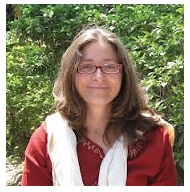Popular Support for Suicide Terrorism in Bangladesh: Worse Than You Think
Editor's Note: Bangladesh, one of the world's largest Muslim countries, is usually considered a success story: slowly but steadily, this secular democracy is climbing out of poverty. This perceived success, however, ignores the country's many problems. Christine Fair, Ali Hamza, and Rebecca Heller—all of Georgetown—paint a far darker picture. They note high degrees of support for militancy and growing violence, arguing that ignoring Bangladesh's problems could prove disastrous.
***
Editor's Note: Bangladesh, one of the world's largest Muslim countries, is usually considered a success story: slowly but steadily, this secular democracy is climbing out of poverty. This perceived success, however, ignores the country's many problems. Christine Fair, Ali Hamza, and Rebecca Heller—all of Georgetown—paint a far darker picture. They note high degrees of support for militancy and growing violence, arguing that ignoring Bangladesh's problems could prove disastrous.
***
In March 2014, Dan Mozena, then U.S. Ambassador to Bangladesh, said that Bangladesh is “a moderate and generally secular and tolerant—though sometimes this is getting stretched at the moment—alternative to violent extremism in a very troubled part of the world.” While Mozena’s statement reflects the general perception that Bangladesh is a success story of a moderate, secular, Muslim democracy, this view never rested on strong empirical grounds. Indeed, since Bangladesh’s independence from Pakistan in 1971, the durability of both secularism and democracy have been undermined by numerous military coups—many of which involved multiple counter-coups before a clear “victor” emerged—in 1974-75, 1977-1980, 1981-82, 1996, and 2007. (In 2012, the military announced that it had thwarted yet another coup in January of that year.) Bangladesh’s two mainstream political parties are known more for their rivalry, corruption and incompetence than for governance. Since independence, Bangladesh has experienced creeping Islamism that continues to enjoy popular support, and increasingly, Bangladesh is the site of Islamist violence. Between January 2005 and June 2015, nearly 600 people have died in Islamist terrorist attacks, but 90 percent of those have taken place since 2013. That the Islamic State (IS) and Al Qaeda Indian Subcontinent (AQIS) claim many of these recent attacks casts a pall over Bangladesh’s ostensible success story.
|
IT'S OUR SIXTH BIRTHDAY! Support Lawfare so we can continue bringing you articles like this one. |
Despite these troubling signs, Bangladesh has generally received scant attention of security studies scholarship. This is puzzling: Bangladesh has one of the world’s largest Muslim populations with more than 150 million Muslims, in addition to 19 million non-Muslims. Bangladesh’s Muslim population exceeds the combined populaces of Iran (81.2 million), Afghanistan (32.6 million), and Saudi Arabia (27.7 million). But it is also one of the world’s least developed countries: Bangladesh ranks 142 out of 190 countries according to the United Nations Human Development Index. Its citizens also view their country as plagued by corruption, ranking 139 out of 167 countries ranked in Transparency International’s 2015 Corruption Perception Index. Bangladesh is an important provider of global security, consistently being one of the largest contributors to United Nations Peacekeeping Missions. While not a top-tier military, its military forces are ranked 52 out of 126, using an index that considers the forces’ end-strength, diversity, and number of weapons systems, as well as measures of national power.
Whereas the origins of Islamist militancy and support for the same is fairly well characterized in Pakistan and several other countries in Southwest and Southeast Asia, these issues have not been explored empirically in Bangladesh. In an effort to address this scholarly lacuna, we employ data for Bangladesh from the Pew Research Center’s World’s Muslims Data Set. First, we show how Bangladesh compares to other countries on key metrics of support for terrorism and religious intolerance. Next, we summarize results of our regression analyses, available in greater detail here. We conclude with a discussion of the implications of this research.
Bangladesh: More Intolerant Than Suspected
We find that support for suicide attacks is rather high in Bangladesh, with almost half of the population finding them justified in some measure. Levels of justification for suicide attacks in Bangladesh are considerably higher than in Pakistan, Indonesia, or Malaysia (See Figure 1). We also find very high levels of support for Sharia law in Bangladesh (See Figure 2). While Bangladeshi respondents were among the least supportive of the death penalty for leaving Islam (Figure 3) and using physical punishment (hudood) such as cutting of hands for crimes like theft (Figure 4), support for these positions is still high. Bangladeshis were more supportive of stoning adulterers than respondents in Malaysia and Indonesia. Only Pakistanis and Afghans were more supportive of this punishment (Figure 5).





Explaining Support for Suicide Attacks in Bangladesh
While such comparisons are interesting, they cast very little light upon why Bangladeshis support or oppose, for example, suicide bombing. To better understand who supports suicide bombing in terrorism, we estimated three models for our dependent variable (support for suicide bombing), the results for which are displayed in the regression table below. The first model included only Islamism, piety, and secularism as independent variables to isolate their effects. In the second model, we included only the economic variables to isolate their impacts. The third model included the entire set of independent and control variables. We created indices that reflect different concepts of Sharia and religiosity: respondent beliefs that Sharia reflects physical punishments (stoning, cutting of hands, etc.), beliefs that Sharia is a form of government that provides public goods, respondents’ devotional practices (prayer, fasting, etc.), and respondent commitments to secularism. We also ran standard control variables.
We found that those who support physical punishments (hudood) are significantly more likely to support suicide bombing. In contrast, those who believe Sharia is more about public goods provision are significantly less likely to do so. Neither piety nor secularism had any impacts upon support for suicide terrorism. Among the control variables, we found that males and those who perceive themselves to be economically well-off are more supportive of suicide bombings, as are those who are less educated.
These findings raise a number of questions about the underlying receptivity to Islamist violence and basic intolerance in Bangladesh. Unfortunately, this is relatively a small sample size and Pew does not provide information about the locality of the residents. This means that these results, while important, are not the final word on this subject. These results do make the case for much more data collection and analysis on this important but understudied country.
Conclusion and Implications
Bangladesh is a highly-populated and troubled country. However, unlike neighboring India and Pakistan, it has generally been ignored by the security studies community. This remains the case despite the variegated history of Islamist violence and the recent spate of violent attacks on non-Muslim minorities, Sufis, Ahmedis, liberal and secular social activists, and foreigners. This insouciance is ill-advised. Bangladeshis exhibit higher levels of support for suicide bombing than many other countries in South and Southeast Asia. Variables that strongly predict support for suicide bombings, such as our “hudood” index, have significant support, according to these data. While popular support for notions of Islamist leaders providing dispute resolution is high, with some 70 percent of respondents embracing it, the mitigating value of this variable is less than the exacerbating contribution of the “hudood” index.
Bangladesh has consistently attracted the attention of development economists and sociologists, and it has long been the recipient of developmental aid intended to expand employment and educational opportunities. However, these variables work against one another to impact support for suicide terrorism. While education seems to mitigate support for violence, higher perceived economic standing exacerbates it. The different influences of these variables suggest that developmental assistance is unlikely to have the palliative effects that aid organizations often claim.
Worse yet, Bangladesh’s institutions are highly politicized and the two mainstream parties seem more interested in fighting each other than the serious sources of instability that threaten the country. While Pakistan often draws the ire of the international community for its role in international terrorism, few commentators seem even aware of the fact that both the Islamic State and Al Qaeda in South Asia (AQIS) have locked their sights on one of the world’s largest Muslim countries, while the government remains rooted in a posture of denial about the activities of these two organizations on Bangladeshi soil. Too often scholars, analysts, and policymakers find themselves chasing problems only after they emerge. There is a real chance to prevent further spread of Islamist militancy in this important but overlooked country. But only if we all start to take this challenge seriously.
Regression Table
|
|
(1) |
(2) |
(3) |
|
|
suicide_bombing |
suicide_bombing |
suicide_bombing |
|
|
b/se |
b/se |
b/se |
|
Hudood |
0.430*** |
|
0.398*** |
|
|
(0.098) |
|
(0.099) |
|
Provides |
-0.130** |
|
-0.130** |
|
|
(0.053) |
|
(0.054) |
|
Piety |
0.139 |
|
0.195 |
|
|
(0.151) |
|
(0.155) |
|
Secularism |
-0.076 |
|
-0.087 |
|
|
(0.115) |
|
(0.115) |
|
Econ_perceived |
|
0.136*** |
0.124*** |
|
|
|
(0.031) |
(0.031) |
|
Econ_actual |
|
-0.001 |
0.007 |
|
|
|
(0.010) |
(0.011) |
|
Educ |
|
|
-0.029*** |
|
|
|
|
(0.011) |
|
Male |
|
|
0.115** |
|
|
|
|
(0.049) |
|
Age |
|
|
-0.000 |
|
|
|
|
(0.002) |
|
Constant |
1.598*** |
1.480*** |
1.231*** |
|
|
(0.134) |
(0.114) |
(0.183) |
|
N |
1863 |
1832 |
1826 |
|
R-squared |
.0136 |
.0108 |
.0293 |
|
Dep Var Mean |
1.84 |
1.85 |
1.85 |
|
* p<0.10 **=""><0.05 ***=""><> |
|||







